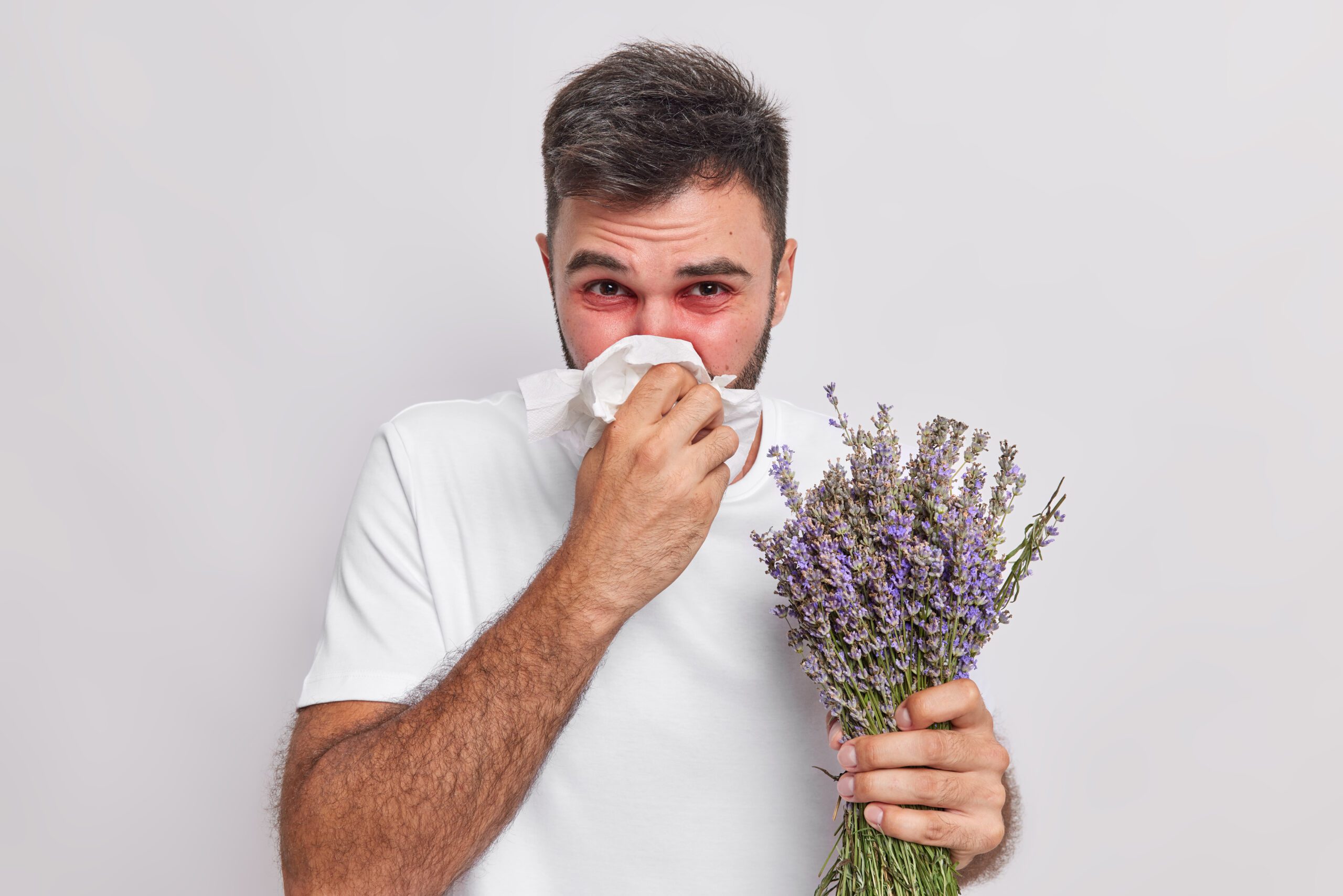Here, we are sharing information on the topic “What do you mean by rhinitis.” A runny nose and stuffiness are the hallmarks of rhinorrhea, which is an inflammation and swelling of the nasal mucous membrane that is typically brought on by a seasonal allergy or the common cold.
-
Allergic reactions and colds are the most frequent causes of rhinorrhea.
-
Sneezing, stuffiness, and a runny nose are signs of rhinitis.
-
Usually, the symptoms are used to make the diagnosis.
Treatments for the different types of rhinitis include surgery, antihistamines, antibiotics, desensitization injections (also known as allergy shots), and avoiding triggers.
There are two types of rhinorrhea: allergic and nonallergic. Though irritants can also cause it, viral infections are typically the cause of nonallergic rhinitis. The most often affected area of the upper airways is the nose.

What do you mean by rhinitis
-
An infection of the lining of your nasal cavity is called rhinitis. It may or may not be allergenic. Additionally, it may spread.
-
Breathing in an allergen can cause allergic rhinitis. It may also be perpetual, impacting you all year round, or seasonal, affecting you only during specific periods of the year.
-
40–60 million Americans suffer from allergic rhinitis, according to the American College of Allergy, Asthma, and Immunology.
-
Nonallergic rhinitis is brought on by one or more non-allergy producing factors rather than a particular allergen. You may experience short- or long-term effects from it.
Why does rhinitis occur?
Rhinitis caused by allergies
-
Your immune system identifies an allergen, which sets off an allergic reaction and causes allergic rhinitis. For most people, these substances are harmless.
-
However, if you have an allergy to them, your body reacts as though they were dangerous. In response to the allergen, your immune system produces antibodies known as immunoglobulin E (IgE). As a result, the body releases chemicals—including histamine—that are part of the inflammatory response from certain cells. The symptoms of rhinitis are brought on by this series of events.
-
It’s customary to refer to seasonal allergic rhinitis as “hay fever.” Usually, it happens in the early fall, summer, or spring. In addition, you can encounter it more than once a year, depending on your allergies. Usually, airborne mold (fungus) spores or pollen from particular plants, like these, cause it to occur.
grasses trees, flowers, and weeds
Numerous allergens, such as the following, can cause perennial, or year-round, allergic rhinitis:
-
saliva, pet dander, and cockroach droppings
-
mold dust mite droppings
-
Rhinitis without allergies
It could be harder to diagnose nonallergic rhinitis. It does not involve the immune system response seen in allergic rhinitis and is not brought on by allergens. Possible catalysts consist of:
-
Foreign objects, including cold viruses, in your nasal infections
-
Some medications, including blood pressure-lowering pharmaceuticals and nonsteroidal anti-inflammatory drugs (NSAIDs),
-
smoking, fumes, certain foods, and other air pollutants
-
variations in the weather
-
hormonal modifications
-
stress
Your nasal cavity’s structural issues, such as polyp growth or a deviated nasal septum that narrows your nasal passageways, may be the cause of your nonallergic rhinitis.
Who might get rhinitis?
-
You are more susceptible to allergic rhinitis if you have a family history of asthma or eczema.
-
Nonallergic rhinitis is also more common in people who are frequently exposed to environmental irritants, such as secondhand smoking.
How can one diagnose rhinitis?
-
Your doctor does a thorough physical examination and comprehensive history to diagnose allergic rhinitis. In order to screen for allergies using a skin or blood test, they could additionally recommend that you see an allergist.
-
Your doctor can use this information to assess whether your rhinitis is allergic or nonallergic.
How does one treat rhinitis?
-
Steer clear of your allergens as the best treatment for allergic rhinitis. Take action to get rid of mold, pet dander, and other common allergens from your home if you have an allergy to them.
-
Spend as little time outside during the blooming season of the plants that cause your symptoms if you have a pollen allergy. Additionally, you should take precautions to keep pollen out of your automobile and house. Consider shutting your windows and fitting your air conditioner with a HEPA filter.
-
Medication can help reduce your symptoms if you are unable to avoid your allergy. For instance, your doctor might advise you to take decongestants, antihistamines, intranasal corticosteroid spray (available over-the-counter or with a prescription), or other drugs.
How does the prognosis for rhinitis look?
-
Although it is painful and annoying, rhinitis usually presents little health risk:
-
After you have had enough exposure to your allergen, allergic rhinitis normally goes away.
-
Although the duration of nonallergic rhinitis varies, it can be controlled with symptom-relieving medication and avoiding triggers.
-
Find out more from your doctor about the precise diagnosis, available treatments, and prognosis in the long run.

Conclusion
(What do you mean by rhinitis)
In summary, rhinitis is a disorder that causes inflammation of the nasal mucous membrane, which results in symptoms including runny nose, sneezing, itching, and nasal congestion. Numerous things, including allergies, irritants, or infections, might cause it. In addition to using drugs including decongestants, nasal corticosteroids, and antihistamines, managing rhinitis entails recognizing and avoiding triggers. People with rhinitis can effectively reduce their symptoms and enhance their quality of life by learning the origins of their condition and putting suitable treatment measures in place.
Frequently asked questions
(What do you mean by rhinitis)
Is rhinitis an allergy?
Answer: A diagnosis of allergic rhinitis is linked to a set of symptoms affecting the nose. When you breathe in allergens like dust, pollen, or animal dander, you experience these symptoms. Eating a meal to which you are allergic can also cause symptoms.
Can rhinitis be cured?
Answer: Sometimes, over time, allergic rhinitis symptoms get better, but it can take years for them to do so, and it’s doubtful that they will go away entirely.
Can rhinitis be cured permanently?
Answer: Since allergic rhinitis is a chronic ailment, there is no known permanent cure. However, many people can successfully control their symptoms with appropriate therapy, which includes the use of pharmaceuticals, over-the-counter treatments, and lifestyle changes.
How long can rhinitis last?
Answer: For many, it goes away on its own in a few days. For some people, particularly those who have allergies, rhinitis can be a persistent issue. A chronic condition is one that is nearly constant or frequently recurs. When exposed to allergens, rhinitis can linger for several weeks or months.
So, this is how the topic “What do you mean by rhinitis” has been addressed.
- For more information related to these topics, click here.
- You may also visit our Instagram page by clicking here.
- You may also visit our YouTube channel by clicking here






